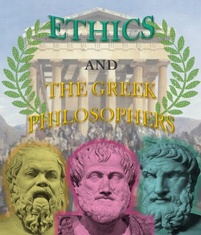
Is Morality Relative?... according to the Sophists
Blog by
Last updated: Friday February 2nd, 2024
Report this blog
Last updated: Friday February 2nd, 2024
Report this blog
+4
Quick Links
This blog shall provide an academic overview of the Protagoras' and Gorgias': the most prominent Sophists, notion of moral relativism. It is chiefly intended for college students due to the intricate information provided and the high level of vocabulary.
For ease of learning, I have provided some hyperlinks to Encyclopedia Britannica or other relevant websites for certain specific terms.
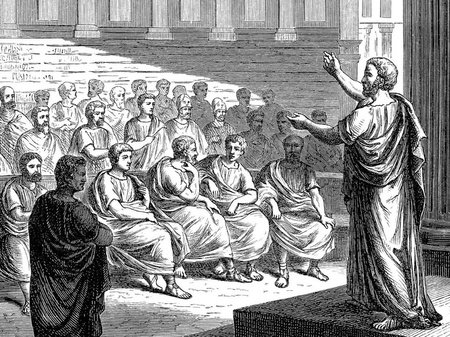
The Ecclesia: the intellectual centre in Athens for political discourse
Overview
The query concerning the nature of morality – whether subjective or objective – remains a contentious issue in ethical and epistemological philosophy over two millennia after its inception – when the subject flourished. During the latter half of the fifth century BCE in ancient Greece, the debate was rejuvenated as an established group of itinerant teachers dubbed ‘Sophists’ posited the absence of universal truth – that an individual’s senses impact morality and knowledge. This concept of relativism left an indelible impact on philosophy, mostly due to the notions of Protagoras of Abdera (c. 490-420 BCE) and Gorgias of Leontini (c. 483-375 BCE).
Background to the Sophists
Besides being philosophical figures, the Sophists were prolific orators and preached their rhetorical techniques to a populace necessitating it. At the time – the Athenian Golden Age – Pericles had bolstered democracy in the city-state; consequently, many resorted to them to learn how to debate efficaciously in the Ecclesia. For instance, Protagoras and Gorgias migrated to tutor rhetorical persuasion (areté). They adopted unorthodox practices in their teaching: most notably charging fees for their lectures, and disregarded the moral contents of an argument, instead highlighting its linguistic merit – how a premise is communicated determines its validity. This was invariably galvanised by their scepticism and personal disbelief in an established moral system.

Map of the Greek city states in 500 BCE - a few decades before the Athenian Golden Age
Protagoras
Protagoras was the most celebrated and significant Sophist – around whom the concept of moral relativism is centred. His contribution to the philosophical debate can be summarised in his statement: “Man is the measure of all things, of the things that are, that they are, and of the things that are not, that they are not” – meaning that the individual is the unchanging source of value and knowledge, rather than a deity or moral code. This premise applies to any anatomical mechanism, from sensations to rudimentary qualities, such as justice, beauty, and morality. For example, a man living in the Arabian desert will feel cold in Marseilles, whilst an Eskimo would be dismayed at the heat. Despite his discredit to absolute morality, Protagoras was pragmatic and approbated a legal system to preserve order in Athens. Since an individual’s perception of anything varies with his experience and discernment, he concluded that no ‘truth’ can be known.
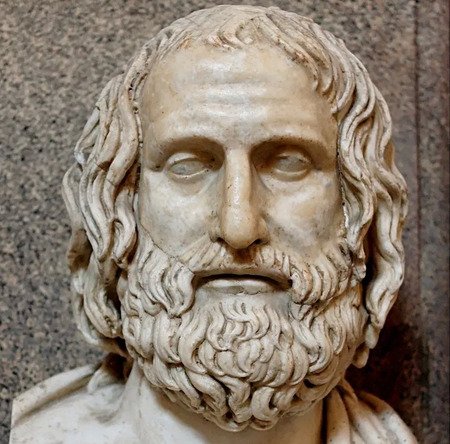
Protagoras: the most significant Sophist and founder of moral relativism
Gorgias
Gorgias could be seen as Protagoras’ right-hand man, but his radical moral nihilism distinguished the two. In his work 'On Nature', he declares that: “Nothing exists; even if something exists, nothing can be known about it; and even if something can be known about it, knowledge about it cannot be communicated to others” – inherently postulating that no truth can exist. Vis-à-vis the third notion, since language – down to vocabulary and tone – only reflects the speaker’s opinion; therefore, knowledge cannot be shared. To prove his notion that what exists cannot be apprehended, one can imagine a unicorn grazing, but such an occurrence is impossible – showing that what is processed in the brain is distinct from reality. Gorgias was more extremist than other Sophists, concluding that values and knowledge are groundless.
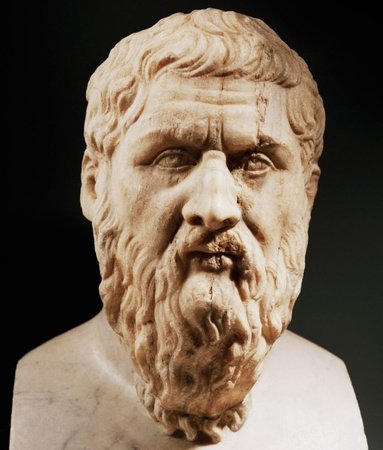
Gorgias: arguably the second most prominent Sophist and founder of moral nihilism
Counterarguments to Moral Relativism
Owing to the implications of their beliefs, the Sophists garnered severe criticism and derision from their contemporaries and successors. Since they claimed that language, not logic, was the key to rhetoric and that social customs were mere conventions and not necessarily ethical guides – they were accused of debauching Athenian society and youths by repelling them for obeying moral and religious traditions – to the extent that Plato labelled them as “shopkeepers with spiritual wares”. Furthermore, in reference to Protagoras, some deemed moral relativism contrastive: if the truth depended on the individual, everyone would be accurate in his beliefs, making discussion and education infeasible. Moral absolutists such as Socrates and Plato also held that there are universal truths and knowledge centred on the individual’s soul. Despite their initial popularity, the Sophists’ reputation was eventually tarnished – and moral relativism swiftly fell out of favour.

Socrates: the main opponent of Sophistic thinking
Conclusion
The Sophists asserted that objective knowledge is impossible – this ranged from Protagoras’ moderate relativist outlook that truth changes with each person’s perception to Gorgias’ radical nihilism, holding that truth cannot exist. Despite stringent criticism from moral absolutists such as Socrates and Plato, they reformed ethical philosophy – being the earliest adopters of empiricism and relativism.
Further Reading
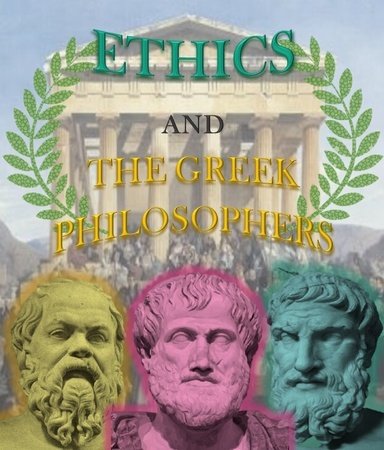
This blog is part of a set concerning the ETHICS AND THE GREEK PHILOSOPHERS. The rest can be accessed from my Philosophy series, listed consecutively as the first category of blogs.

Morality is a tough subject. As a deist, I would say that there is some sort of common morality—even if in a more general sense—that all humans share. For instance, we all know that stealing, murder, and lying is bad. It seems to be written into us.
Perhaps the reason why we innately believe that murder is wrong, for instance, is due to the extensive cultural influence in our upbringing, or because of our instinct as a member of a tribe - the human race. However, some seem to ignore these.
Gorgias: Yeah, well, you know, that's just, like, your opinion, man. Please pay me for my wisdom.
Truly, a titanic intellect.